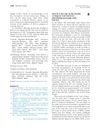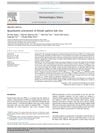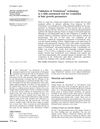How Good Is Artificial Intelligence at Solving Hairy Problems? A Review of AI Applications in Hair Restoration and Hair Disorders
January 2021
in “
Dermatologic Therapy
”

TLDR AI is effective in diagnosing and treating hair disorders, including detecting hair loss and scalp conditions with high accuracy, but it should supplement, not replace, doctor-patient interactions.
The document reviews the use of artificial intelligence (AI), specifically deep learning, in diagnosing and treating hair disorders. AI has been used to diagnose skin cancers with the same accuracy as a dermatologist, and similar applications are emerging in hair restoration. Current AI applications include automated systems for hair detection and hair growth measurement, and new systems for scalp diagnosis and automated hair loss measurements. AI-based systems have also been developed for early diagnosis of alopecia areata with 91% accuracy, and have achieved 97%-99% precision in detecting dandruff, folliculitis, hair loss, and oily hair. The FDA-approved hair restoration system, ARTAS, uses AI to detect the location, angle, and direction of follicular units for hair restoration. However, the accuracy of these AI models depends on the quality of the training data sets. The document concludes that while AI can facilitate the diagnosis and treatment of hair disorders, it should enhance, not replace, the physician-patient relationship.














